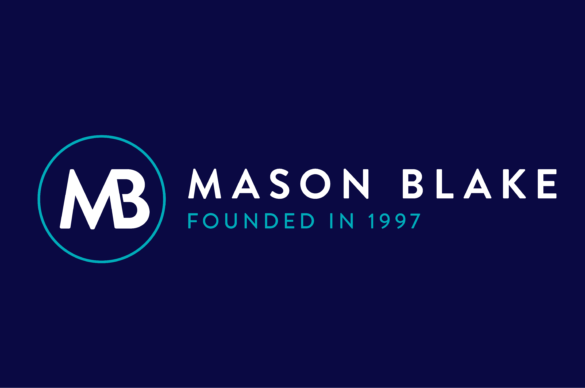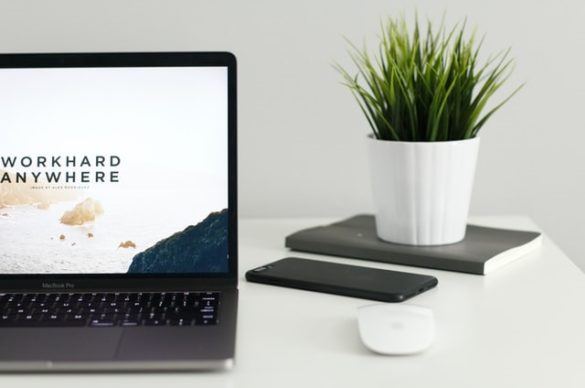Rachael Brooks / 09 November
Dealing with interview nerves

Everyone gets nervous at interviews – some more than others – both the candidate and the interviewer. Indeed, we have seen candidates that were highly qualified and a very good team fit miss out on an opportunity because nerves got the better of them. We’ve also had situations where a highly desirable candidate has pulled out of a process because a nervous interviewer gave them a negative impression of the hiring company.
So how can you deal with nerves effectively and make sure your ‘best self’ comes across? We believe it boils down to preparation and mindset.
Prepare: learn about the other party
It’s often the unknown that causes fear and anxiety. If you know your stuff you’ll feel more confident and will certainly come across better.
For an interviewer, this means carefully reading the candidate’s CV and doing searches on their previous employers, schools, LinkedIn profile and even hobbies. Always ask your Mason Blake consultant for their impression of the candidate too, as your consultant will always give an honest opinion. Based on this research, make a list of at least ten questions you would like to ask. Knowing what you are going to say and ask means you can give the interview structure and give yourself confidence that you know what you’re going to do.
Likewise, candidates need to prepare rigorously. Learn everything you can about the hiring company, including its products, services and structure, starting with a thorough exploration of its website. Also do a news search on the company. This can reveal new products, personnel changes or announcements about the company that you can bring into the interview process, if appropriate. This clearly demonstrates your interest and commitment. Being prepared will help settle your nerves and let your qualities shine.
Prepare: anticipate questions
Candidates should try to anticipate questions, thinking about their CV from the interviewer’s point of view. Play devil’s advocate: is there anything that might cause them to doubt your suitability? If so, prepare answers. Also, review your CV against the job description, thinking of ways your experience would be relevant to the role and of benefit to the company. Have specific examples from your previous roles to demonstrate your abilities in each of the key areas. Uncertainty and disorganisation show the interviewer that you are unprepared and unclear what your goals are.
Interviewers also need to think ahead about any questions the candidate might ask. Again, this helps mitigate nerves, giving you the confidence that you won’t get caught out. For example, the best candidates are likely to ask how the role became available and how their performance will be measured. And if your company has been in the news lately, be prepared to discuss any issues this may raise for the company and the role.
Mindset: manage your emotions
The human mind has evolved as a finally honed survival mechanism. It’s constantly on the lookout for threats. In a modern setting, this can have some unintended consequences, starting with negativity and ending with a powerful fight-flight-or-freeze response. For example, we often fret about what might go wrong and inflate the consequences of a negative outcome.
In an interview situation, you need to manage your mind and your emotions carefully to let your ‘best self’ shine. We talked to a couple of Cognitive Hypnotherapists who regularly work with people who have anxiety issues. They gave us three simple things that candidates and interviewers can do to manage nerves in an interview situation:
- Manage your breathing
- Reframe your thoughts
- Visualise the outcomes you want
Manage your breathing
Your body has a fascinating feedback mechanism that can reduce your anxiety by simply focusing on breathing as though you are relaxed.
When we’re anxious or frightened, we tend to take short, shallow breaths through our mouth. When we’re relaxed, we tend to breathe through our nose slowly and more deeply. Breathing as though you are relaxed involves deliberately breathing slowly and steadily through your nose. Gradually lengthening your exhalation until it’s longer than your inhalation (ideally twice as long), can calm you down. Many of the physical responses when we’re anxious (including increased heart rate, blood pressure and sweating) can reduce considerably with this technique. Next time you’re feeling stressed, try it – you might be surprised just how well it can work for you!
Reframe your thoughts
Instead of panicking about going to ‘an interview’, reframe the meeting as… a meeting! No doubt you’ve been to tens or even hundreds of meetings in your career. An interview is just another meeting. Nothing is going to chase you or eat you in this meeting! You are simply going to sit down with another professional and discuss the business and your possible place in it. Think of it as a two-way conversation – it’s as much about you finding out about the company as it is about the company finding out about you.
Visualise the outcomes
Psychological research shows that around 70% of our spontaneously occurring thoughts are negative. This comes from our evolutionary heritage of constantly checking our environment for danger. We can get wrapped up in all that negativity and start to believe our thoughts to be true. If you focus on a negative thought, such as “My mind is going to go blank if they ask me a tricky question”, then your mind probably will go blank.
You can overcome this by deliberately visualising positive situations (any situation, not just interviews) where you have been confident and in control. What were you doing and saying? How did people respond to you? How were you feeling? Think about how good the outcome was. If you can’t think of a specific example yourself, think of someone else who is confident and in control and imagine yourself to be in their shoes. Visualising the outcome you want has some powerful physiological responses, right down to brain chemical level, that can help you deal with your nerves and be ‘your best self’.
You may not grow to love interviewing or being interviewed. However, preparing carefully and applying some simple techniques to manage your nerves can get you several steps closer to success.

